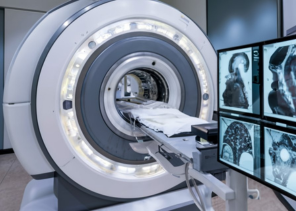
- Admin
WHO IS THE BEST RADIATION ONCOLOGIST IN BASAVESHWAR NAGAR?
Radiation oncology is a critical branch of medical science dedicated to the treatment of cancer using radiation therapy.
WHO IS THE BEST RADIATION ONCOLOGIST IN BASAVESHWAR NAGAR?
Radiation oncology is a critical branch of medical science dedicated to the treatment of cancer using radiation therapy. Within this field, a radiation oncologist plays a pivotal role in devising and implementing treatment plans tailored to each patient's needs. Let's delve deeper into the role and significance of a radiation oncologist, especially in the context of Basaveshwar Nagar.
1. Introduction to Radiation Oncology
Radiation therapy, alongside surgery and chemotherapy, is one of the primary methods used to treat cancer. It involves the targeted use of high-energy radiation to kill cancer cells, shrink tumors, and alleviate symptoms.
2. What is a Radiation Oncologist?
Definition
A radiation oncologist is a specialized physician who specializes in the treatment of cancer using radiation therapy. They work closely with other members of the oncology team to develop comprehensive treatment plans for cancer patients.
Role and Responsibilities
Radiation oncologists are responsible for assessing patients, determining the appropriate course of treatment, and overseeing the delivery of radiation therapy. They also monitor patients' progress throughout treatment and adjust the treatment plan as needed.
3. Qualifications and Training
Educational Background
To become a radiation oncologist, one must complete a bachelor's degree, followed by four years of medical school and a residency program in radiation oncology.
Specialized Training
After completing residency, many radiation oncologists pursue additional training through fellowships to specialize in specific areas such as pediatric oncology or brachytherapy.
4. Skills and Expertise
Medical Knowledge
Radiation oncologists possess extensive knowledge of cancer biology, radiation physics, and the effects of radiation on the human body.
Communication Skills
Effective communication is essential in oncology, and radiation oncologists must be able to explain complex treatment plans and potential side effects to patients and their families.
5. Role in Cancer Treatment
Planning and Administering Radiation Therapy
Radiation oncologists work with medical physicists and dosimetrists to create precise treatment plans that deliver radiation to the tumor while minimizing damage to healthy tissues.
Collaborating with Multidisciplinary Teams
They collaborate with surgeons, medical oncologists, and other specialists to ensure that patients receive comprehensive care.
6. Importance of Choosing the Best Radiation Oncologist
Impact on Treatment Outcome
The expertise and experience of the radiation oncologist can significantly influence treatment outcomes and patient survival rates.
Quality of Care
Choosing the best radiation oncologist ensures that patients receive the highest quality of care and personalized treatment plans tailored to their specific needs.
7. Finding the Best Radiation Oncologist in Basaveshwar Nagar
Research and Recommendations
Patients can start by researching local radiation oncologists online and seeking recommendations from their primary care physicians or other cancer specialists.
Credentials and Experience
It's essential to consider the radiation oncologist's credentials, experience, and track record of success in treating similar cases.
8. Patient Experience and Satisfaction
Compassionate Care
The best radiation oncologists prioritize compassionate care and strive to create a supportive environment for their patients.
Supportive Environment
Patients should feel comfortable asking questions, expressing concerns, and participating in their treatment decisions.
9. Cost and Accessibility
Insurance Coverage
Patients should consider whether the radiation oncologist accepts their insurance and what out-of-pocket expenses they may incur.
Location and Facilities
The location of the radiation oncology clinic and the availability of state-of-the-art facilities may also influence the decision-making process.
10. Innovations and Advancements in Radiation Oncology
Technological Advances
The best radiation oncologists stay abreast of the latest technological advancements in radiation therapy, such as intensity-modulated radiation therapy (IMRT) and stereotactic radiosurgery.
Personalized Treatment Approaches
They also embrace personalized treatment approaches, tailoring radiation therapy plans to each patient's unique anatomy and tumor characteristics.
11. Success Stories and Patient Testimonials
Patients can seek out success stories and patient testimonials to gain insight into the experiences of others who have been treated by the radiation oncologist.
12. Challenges Faced by Radiation Oncologists
Emotional Toll
The nature of their work can be emotionally challenging, as radiation oncologists often form close relationships with their patients and witness the impact of cancer firsthand.
Workload and Burnout
The demanding nature of the job can lead to burnout, highlighting the importance of self-care and support systems for radiation oncologists.
13. Continuous Learning and Professional Development
Continuing Medical Education
The best radiation oncologists are committed to lifelong learning and regularly participate in continuing medical education to stay current with advancements in their field.
Participation in Research
They may also be involved in clinical trials and research studies aimed at improving cancer treatment outcomes.
14. Conclusion
In conclusion, a radiation oncologist plays a crucial role in the treatment of cancer using radiation therapy. When seeking the best radiation oncologist in Basaveshwar Nagar, patients should prioritize expertise, experience, compassion, and access to innovative treatment options.
15. FAQs (Frequently Asked Questions)
Q1: How long does radiation therapy treatment typically last?
A1: The duration of radiation therapy treatment varies depending on the type and stage of cancer but typically ranges from several weeks to a few months.
Q2: What are the common side effects of radiation therapy?
A2: Common side effects may include fatigue, skin changes, and temporary hair loss in the treatment area.
Q3: Is radiation therapy painful?
A3: Radiation therapy itself is painless, but some patients may experience discomfort or mild side effects during or after treatment.
Q4: Can radiation therapy be used in combination with other cancer treatments?
A4: Yes, radiation therapy is often combined with surgery, chemotherapy, or immunotherapy to maximize treatment effectiveness.
Q5: How often will I need to see my radiation oncologist during treatment?
A5: Patients typically have regular appointments with their radiation oncologist to monitor their progress and address any concerns.


